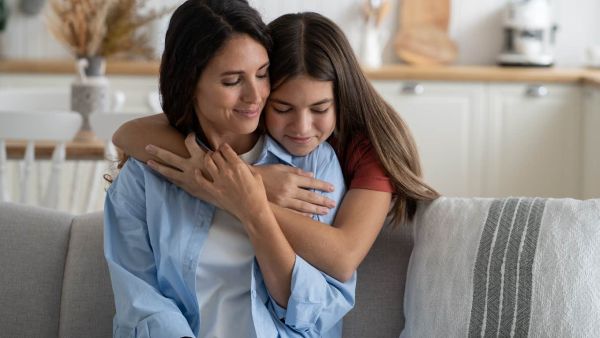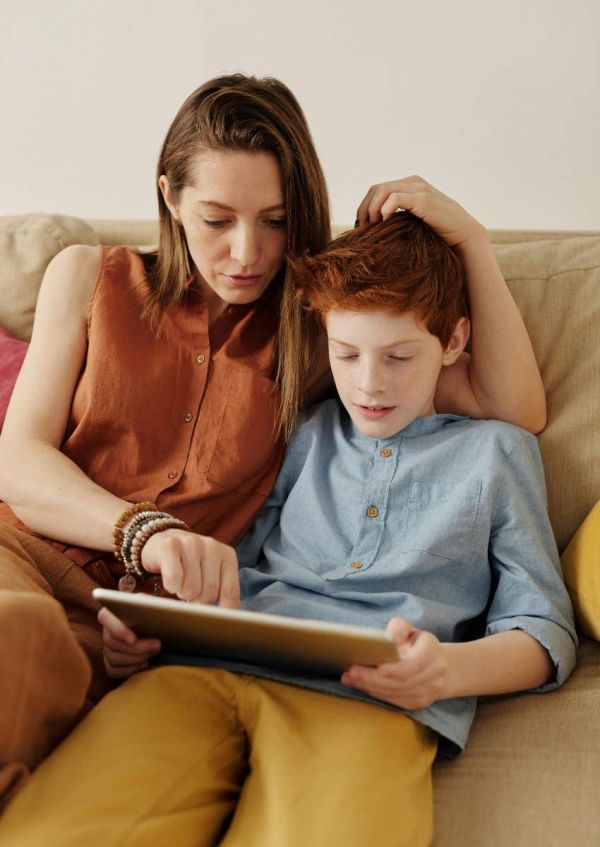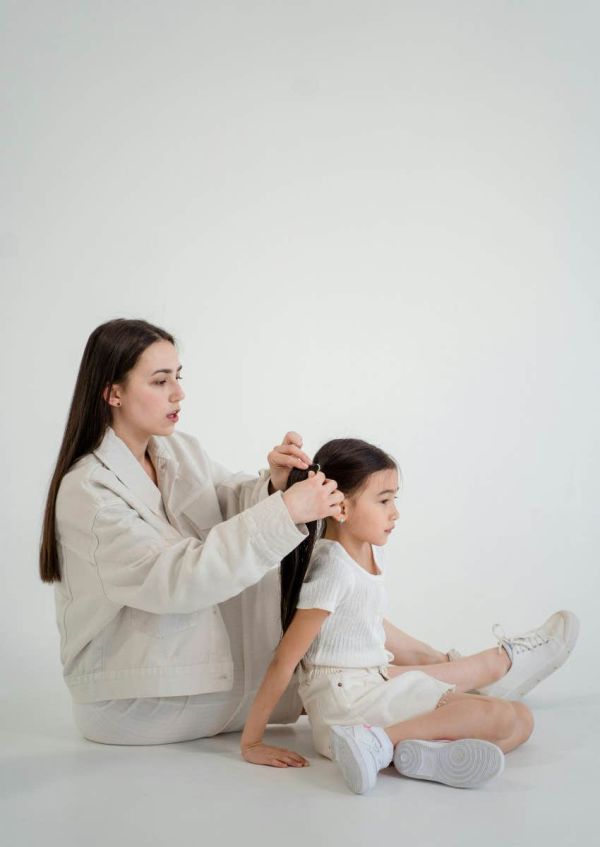
As a parent, you want to do everything you can to be there for your child. Legally, that ends at 18, but most parents will tell you it never truly ends.
But at what point is their behavior just not your responsibility anymore? Does that point even exist? One parenting coach thinks so. In a clip from a recent podcast episode, the expert argued that a parent’s influence doesn’t extend beyond a certain age in childhood, so you need to instill all the important life lessons before that point.
Lisa Bunnage, host of the BratBusters Parenting Podcastrevealed some interesting information in a recent TikTok video. According to Bunnage, there is actually an age at which parents can’t be held responsible for their children’s behavior. “From the ages of three to 12, their behavior is 100% a direct result of your parenting,” she said. “And I am exaggerating slightly, but I get my point across.”
Foxy Dolphin | Canva Pro
“You have so much more control than you think you do,” she said of this age range, “because that is at the height of them needing guidance, and they need a mentor, and they need a leader, and that’s what you need to be for them.”
Bunnage also addressed the age groups that come right before and right after the range in which parents are responsible for their kid’s behavior. “Now, toddlers are nuts anyway, okay? So they’re just crazy ‘cause they’re just forming,” she said. “And teenagers, they’re pulling away. They’re becoming more their own leaders.”
Because teenagers tend to head in this direction, Bunnage shared a crucial mistake parents are making with them.“The biggest mistake parents make with teenagers is that they don’t understand that,” she argued. “They think they can still parent the same way, and they have curfews. I don’t like curfews or anything like that.”
: 4 Things Parents Who Raise Kids That Grow Up To Be Highly Successful Never Do When They’re Young, According To A Parenting Expert
“It’s only between the ages of three and 12 years old when I meet a kid … and their behavior is a certain way, and even if they’re just an easy kid, I can usually tell what kind of parenting they’ve had,” she insisted.“If I spend any amount of time with a kid, I can usually tell by the way they talk to me and … their self-esteem,” she shared.
Bunnage said that at this age, it’s crucial for kids to have a leader to look up to in one or both of their parents.
 Julia M Cameron | Pexels
Julia M Cameron | Pexels
“Kids who have a leader tend to have higher self-esteem,” she said. “Kids without a leader, they’re lost. They’re more likely to be bullied. They’re more likely to bully. They’re more susceptible to peer pressure, the drug dealer on the corner, the internet, the Kardashians, you get the idea.”
“They’re out searching for a leader ‘cause it’s a natural instinct for a child to need a leader,” she concluded. At the heart of Bunnage’s message was not only the fact that kids between three and 12 are really still their parents’ responsibility but also the fact that kids this age desperately need a leader they can look up to.
: 6 Phrases Parents Don’t Realize They Say That Cause Deep Emotional Wounds In Their Kids
According to Law Firm Matthiesen, Wickert and Teacher, SCin most states, parents are no longer legally responsible for their children once they reach the age of 18. There are some exceptions to the rule, like in Nebraska, where the age is 19, or in Mississippi, where it’s 21.
As legal adults, kids are technically on their own, but most parents would argue that they never stop parenting their kids regardless of age.
 Ron Lach | Pexels
Ron Lach | Pexels
In terms of legality, however, once a child is considered an adult in the eyes of the law, their behavior is their own. In an interview with Knowable Magazine, developmental psychologist Colleen Sbeglia pointed to recent developments in cases where parents were prosecuted for their children’s crimes as a sign that this idea is being taken more seriously. Then again, that still points to the legal side of things.
What Bunnage was trying to stress was that there are important years in between infancy and teenager when parents have the most influence on their kids, and that’s when they need to be instilling important life lessons that they will carry into adulthood. Ultimately, while your responsibility for your kid’s behavior may end once they hit the teenage years, it’s paramount to remember that you’re still legally responsible for them.
: Kids Inherit Generational Trauma From This Parent, Says New Study
Mary-Faith Martinez is a writer with a bachelor’s degree in English and Journalism who covers news, psychology, lifestyle, and human interest topics.